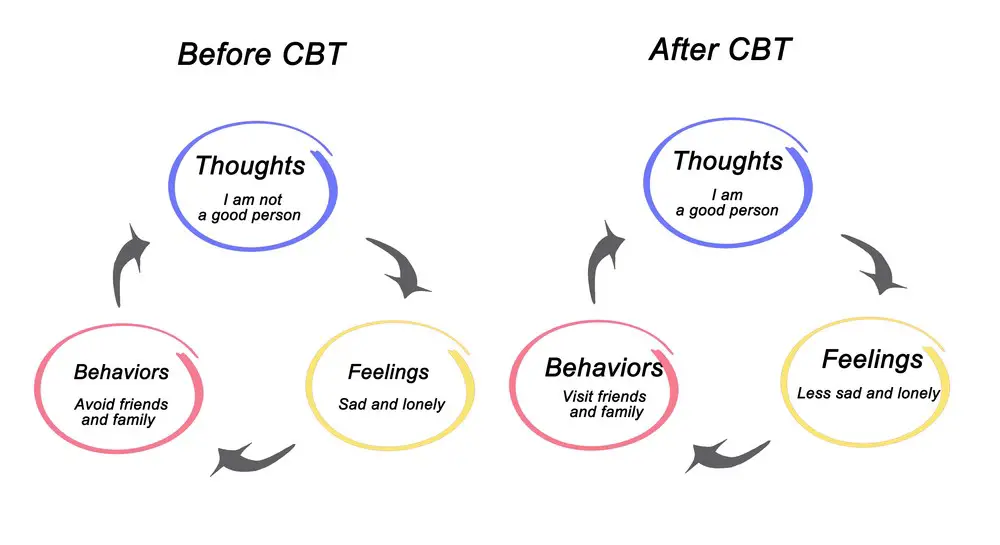Therapy consultation is an essential first step for individuals seeking mental health support. The consultation allows the prospective client and therapist to determine their suitability. It allows clients to express their concerns, discuss their expectations, and better understand the therapy process. It also allows the therapist to assess the individual’s needs and decide whether their expertise aligns with them.
Selecting the right therapist is crucial in the journey toward self-improvement and healing. The therapy consultation process helps individuals find a mental health professional with the qualifications, therapeutic style, and personal approach that best fits their unique situation. Addressing therapy modalities, techniques, confidentiality, and fees during a consultation ensures that clients are well-informed before committing.
Accessibility and open communication are vital during the therapy consultation phase. Exploring various communication methods, logistics, and scheduling options provides the groundwork for a successful long-term therapeutic relationship. Establishing trust and discussing confidentiality sets the tone for an environment of safety and support to foster growth and healing.
Key Takeaways
- Therapy consultation facilitates therapist-client matching and helps individuals express their concerns and expectations.
- Considering factors such as therapeutic style, techniques, and confidentiality ensures clients make informed decisions when selecting a therapist.
- Open communication and trust-building are foundational to the therapy consultation phase, promoting successful long-term therapeutic relationships.

Understanding Therapy Consultation
Therapy consultation is crucial to the therapeutic process, helping patients and therapists establish a strong foundation for ongoing work. It consists of an initial interaction where patients present their issues and therapists offer professional feedback. There are different approaches to therapy consultation, including consultation sessions, phone consultations, and in-person appointments.
Consultation Session
A consultation session is an essential first step in therapy, in which the therapist and patient discuss the patient’s concerns and needs. This conversation helps the therapist gain insight into the individual’s presenting problems and whether their approach to therapy is suitable. It also helps the patient assess whether the therapist fits them well. Consultation sessions can be conducted in various settings, such as over the phone or in person.
Phone Consultation
Phone consultations offer a more accessible and flexible option for therapy consultation, often allowing for increased convenience and accessibility for patients. This type of consultation may be most suitable for those who face mobility issues, time constraints, or geographical limitations. This virtual method lets patients connect with a therapist from the comfort of their home or any quiet, private space.
In-Person Consultation
In-person consultations allow patients and therapists to meet face-to-face, optimizing the development of rapport. This approach can help to establish a strong therapeutic relationship and facilitate more in-depth discussions. In-person consultations allow therapists to observe body language, facial expressions, and other nonverbal cues, better equipping them to understand the patient’s emotional state.
For patients engaging in therapy, understanding the different types of therapy consultations available and choosing the most suitable approach for their needs is essential to establish a constructive therapeutic relationship and gaining the support necessary for personal growth. No matter the approach, a successful initial consultation sets the foundation for a productive and healing therapeutic journey.
 Choosing the Right Therapist
Choosing the Right Therapist
Assessing Therapist Experience
Finding one with the appropriate expertise and experience is essential when seeking a therapist. Consider the specific needs of your healing journey, and look for a practitioner who specializes in those areas. A therapist with the right specialty can provide tailored support and guidance. Some therapists may have certifications or memberships in professional organizations highlighting their expertise.
It can also be helpful to compare different therapists’ approaches and methodologies. Some may focus more on cognitive-behavioral therapy, others on psychoanalysis, etc. Researching therapy styles and considering which might be the best fit for your needs can facilitate a successful therapeutic experience.
Rapport With Therapist
Establishing a strong rapport with your therapist is crucial for effective therapy. This connection can foster an environment of trust and support that is key to the healing process. When considering different therapists, pay attention to your initial interactions with them. Ask yourself questions such as:
- Do I feel comfortable discussing my thoughts and feelings with this person?
- Does the therapist listen attentively and show empathy?
- Are they non-judgmental and accepting of my concerns and struggles?
Remember that finding a good fit may take some time, and you might need to consult several therapists before settling on the right one. Don’t be afraid to trust your instincts when deciding on a therapist – if it feels like a safe and supportive relationship, it’s more likely to lead to a positive outcome.
 Modalities and Techniques
Modalities and Techniques
Types of Therapy Utilized
Various types of therapy are available to cater to an individual’s unique needs and preferences. Some common types include:
- Cognitive Behavioral Therapy (CBT): This technique focuses on identifying and changing negative thoughts or behavioral patterns, thereby supporting a healthier outlook on life.
- Psychodynamic Therapy: Rooted in Freudian psychology, this modality delves into a person’s unconscious mind to reveal hidden emotions, experiences, and beliefs influencing current struggles.
- Humanistic Therapy: This approach emphasizes an individual’s worth, encouraging self-awareness and personal growth.
Each therapy type utilizes different expertise, increasing the chances of finding a suitable match for someone on their healing journey.
Specialized Therapeutic Techniques
In addition to the primary modalities, therapists may employ numerous specialized techniques to enhance their practice. Some examples include:
| Technique | Description |
|---|---|
| Guided Imagery | Using mental images to evoke relaxation or emotional exploration |
| Art Therapy | Engaging in creative expression to process thoughts and emotions |
| Somatic Experiencing | Focusing on bodily sensations to address trauma |
Choosing the appropriate modality and technique can greatly impact the efficacy of therapy, ensuring a more productive and transformative experience.
 Logistics and Scheduling
Logistics and Scheduling
Therapy Session Scheduling
When planning therapy sessions, it’s essential to consider the client’s and therapist’s convenience and availability. Schedule sessions at mutually agreeable times to ensure both parties fully engage in the process. Some factors to consider while scheduling:
- Frequency of sessions: Determine whether sessions will be held weekly, biweekly, or monthly based on the client’s needs and the therapist’s recommendations.
- Duration of sessions: Standard therapy sessions often last 45-60 minutes, but this may vary depending on the client’s and therapist’s preferences and requirements.
- Mode of communication: Establish whether sessions will be held in person, via video, or over the phone.
| Timespan | Duration | Mode |
|---|---|---|
| Weekly | 45-60m | In-person |
| Biweekly | 45-60m | Video |
| Monthly | 45-60m | Phone |
Policy on Cancellation
Therapy sessions require the client and the therapist to set aside time and resources. It’s vital to establish a clear cancellation policy that outlines:
- Notice period: Set a specific time frame within which the client or therapist must inform the other party of a cancellation, such as 24 or 48 hours in advance.
- Late cancellations: Specify consequences for last-minute cancellations, such as a fee or reduced session time during the next appointment.
- Rescheduling: Provide an option for rescheduling sessions when cancellations are necessary, and establish guidelines for communication in these cases.
Cancellations and rescheduling should be approached with understanding and flexibility; unforeseen circumstances may arise, and effective communication between the client and therapist can help maintain a strong therapeutic relationship.
Fees and Payments
Understanding Fee Structure
When considering therapy consultations, it’s essential to understand the fee structure. Fees can vary depending on the therapist’s experience, location, and specialization. Generally, therapists charge a flat fee per session, most commonly on an hourly basis. It’s important to clarify the cost of each session upfront, as well as the session duration.
Some therapists may offer different rates for different services, like group or couples therapy. Additionally, they may provide packages that include a set number of sessions at a discounted rate. To ensure the arrangement suits your financial situation and therapeutic needs, it’s essential to inquire about these options.
Sliding Scale Availability
In some cases, therapists offer a sliding-scale payment model. This means the fees are adjusted based on the client’s income level, making therapy more accessible to a broader range of individuals. Sliding scale fees can significantly help those who cannot afford the standard rates but still need professional care and support.
To find a therapist who offers sliding scale fees, search for mental health professionals in your area and pay attention to their listed rates and payment options. Some therapists may mention sliding scale options on their websites or profiles, while others may not. If you cannot find this information readily available, contact the therapist directly and inquire about sliding scale availability.
Remember that discounts may be limited and subject to specific criteria. It’s essential to discuss the details of the sliding scale arrangement during the initial consultation to ensure that both parties are on the same page regarding fees and payment expectations.
Communication Methods
Email and Text Correspondence
Therapists often utilize email and text correspondences to communicate with their clients. This efficient method allows therapists and clients to exchange information at their convenience. Therapists need to ensure confidentiality and security when using these channels. Below are some best practices:
- Use a secure platform: Utilize encrypted email services and messaging apps to protect clients’ sensitive information.
- Follow regulations: Adhere to the Health Insurance Portability and Accountability Act (HIPAA) and relevant laws when handling personal data.
- Establish boundaries: Communicate response times, availability, and the scope of topics that can be discussed through these mediums.
Social Media Interaction
Social media platforms are increasingly used for therapy consultation as they offer a way to reach and engage a broader audience. However, there are critical factors to consider when using these platforms:
- Maintain professional boundaries: Therapists should have separate personal and professional accounts and avoid discussing sensitive information on public platforms.
- Respect privacy: When interacting online, be cautious about sharing personal information, as social media provides limited control over data.
- Educate clients: Inform clients about the risks associated with social media interactions and guide them towards more secure communication methods when necessary.
By adopting these guidelines, therapists can utilize email, text, and social media effectively while maintaining client confidentiality and adhering to ethical standards.
Confidentiality and Trust
Creating a Safe Space
A vital aspect of therapy is establishing a safe space where clients feel comfortable sharing their personal experiences and emotions. Trust is at this core, allowing clients to engage and benefit from the therapeutic process fully. A safe space should be created by ensuring the physical environment is welcoming, thus enabling clients to feel at ease.
Therapeutic Relationship Confidentiality
The therapeutic relationship is built upon a strong foundation of trust and confidentiality. This maximizes the client’s comfort level, essential for beneficial outcomes. Confidentiality is one of the pillars of therapy, meaning that the information shared during sessions remains private. This allows clients to discuss their concerns without fear of judgment or repercussion.
- Trust: An essential component in the therapeutic relationship, as it enables the client to open up and share their thoughts, feelings, and emotions.
- Comfort level: Factors such as the therapist’s demeanor, the physical environment, and assurance of confidentiality contribute to the client’s comfort, allowing them to engage in the process fully.
- Confidentiality: The commitment of the therapist to keep the client’s information private, fostering trust and creating a safe environment for self-disclosure.
By adhering to these principles, therapists establish a climate of confidentiality and trust, allowing clients to engage meaningfully in the process and facilitating mutual understanding and growth.
Therapy Consultation for Specific Needs
Mental Health Consultation
Therapy consultation for specific needs caters to different mental health issues. Individuals experiencing challenges such as anxiety, depression, and crisis often require specialized consultations to address their concerns effectively.
Mental health consultations assess an individual’s needs and recommend appropriate action. This may include a combination of therapy approaches, such as cognitive-behavioral therapy (CBT), dialectical behavior therapy (DBT), or psychodynamic therapy. Some individuals may also benefit from additional support services, such as:
- Medication management: Monitoring and adjusting psychiatric medications to ensure optimal effectiveness and minimize side effects.
- Peer support groups: Connecting with others who share similar experiences to build a supportive community.
Counseling Consultation
Counseling consultation addresses specific emotional and psychological needs to facilitate personal growth, improve relationships, and enhance overall well-being. These consultations focus on the following aspects:
- Goal setting: Identifying core values, setting achievable goals, and creating a realistic plan for change.
- Skill-building: Developing strategies for managing stress, improving communication, and cultivating resilience.
- Identifying and addressing barriers: Recognizing patterns of thoughts, behaviors, and emotions that may hinder progress and implementing targeted interventions to overcome them.
When seeking counseling consultation, it is essential to find a licensed professional specializing in the individual’s unique needs, such as grief counseling, relationship counseling, or substance abuse counseling. This ensures a tailored approach to addressing the specific concerns most relevant to each individual.
Therapy Consultation: The Way Forward
Initial Consultation
The initial consultation in therapy is a critical step for both the therapist and the client. It allows them to assess the client’s needs, set goals, and establish a therapeutic relationship. This meeting allows the client to communicate their concerns and challenges while the therapist gathers information to develop an appropriate treatment plan.
- Both parties should feel comfortable asking questions and expressing their thoughts during this stage.
- The therapist should be attentive and empathetic and maintain a non-judgmental approach.
Feedback and Support
Feedback and support are essential components of therapy consultation. They ensure that the client’s progress is monitored and any necessary adjustments are made to the treatment plan.
- Feedback: This process allows for open communication between the therapist and client about the effectiveness of the therapy sessions. It also helps to identify areas that may require further attention or exploration.
- Clients are encouraged to share their feelings and experiences throughout the therapy process.
- Therapists should provide honest, constructive feedback to support the client’s growth and development.
- Support: A successful therapy consultation requires ongoing support from the therapist and the client’s support network. This may include family, friends, or other mental health professionals.
- Utilizing various resources can increase the likelihood of a positive outcome in therapy.
- The therapist may coordinate with other professionals to ensure comprehensive care and support for the client.
Overall, the components of therapy consultation, including the initial consultation, feedback, and support, play a pivotal role in fostering a collaborative and effective therapeutic experience.
Frequently Asked Questions
How to prepare for a therapy consultation?
Gather relevant information about your personal and mental health history to prepare for a therapy consultation. This includes any medications you are taking, diagnoses, and therapy experiences. Write down any questions or concerns you may have in advance, and take some time for self-reflection to identify your goals for treatment.
What is the cost of a consultation?
The cost of a therapy consultation varies depending on the therapist’s location, experience, and whether or not they accept insurance. Fees can range from $60 to $250 per session or more. Some therapists offer sliding scale fees, which adjust based on a client’s financial situation. Discussing fees and payment options with your therapist before starting treatment is important.
What happens during an initial consultation?
During an initial therapy consultation, a therapist typically reviews your background, mental health history, and current concerns. They may ask about your relationships, work or school issues, and treatment goals. This initial session allows the client and therapist to assess the therapeutic fit, establish rapport, and discuss expectations for future sessions.
What questions are asked during a therapy consultation?
Therapy consultations may involve questions about your emotional well-being, past therapies, current life circumstances, and psychiatric or psychological diagnoses. Questions may address your relationships, how you cope with stress, and any symptoms you may be experiencing. Your therapist will also be interested in learning about your treatment goals and what you hope to achieve through therapy.
Are there free online therapy consultations available?
Resources such as community mental health centers and nonprofit organizations are available for free online therapy consultations. Some therapists also offer a free initial consultation session. You can search online for free mental health resources in your area or utilize websites that match you with therapists who offer free or sliding-scale services.
How can I join a therapist consultation group?
To join a therapist consultation group, you can begin by searching for a licensed local therapist or counselor who offers group therapy. Reach out to them for information about the group schedule, fees, and any requirements for participation. Additionally, you may find group therapy options through local community centers, support organizations, or online platforms that connect individuals to mental health resources.
As someone who has struggled with mental health challenges while navigating a difficult custody battle with a narcissistic ex-partner, I know firsthand how challenging it can be to manage one’s mental health in the face of such obstacles. I take Lexapro to help manage my symptoms and prioritize self-care practices like taking long daily walks. I had a close relationship with my children for years after the divorce. Still, my ex-partner suddenly refused to comply with court orders and denied me any communication with my kids. Despite this, I remain committed to fighting for what’s best for my children and raising awareness about the impact of narcissism on mental health. I write articles about mental health and narcissism to help others who may be facing similar challenges and provide support and guidance for those who need it.
- Best Tea for Sleep: Top Choices to Help You Drift Off Naturally - February 17, 2024
- How to Increase Deep Sleep: Strategies for More Restorative Rest - February 17, 2024
- Stress Relieving Benefits of Spending Time in a Garden: Interesting Facts to Know - February 16, 2024
This site contains affiliate links to products. We will receive a commission for purchases made through these links.


 Choosing the Right Therapist
Choosing the Right Therapist Modalities and Techniques
Modalities and Techniques Logistics and Scheduling
Logistics and Scheduling

